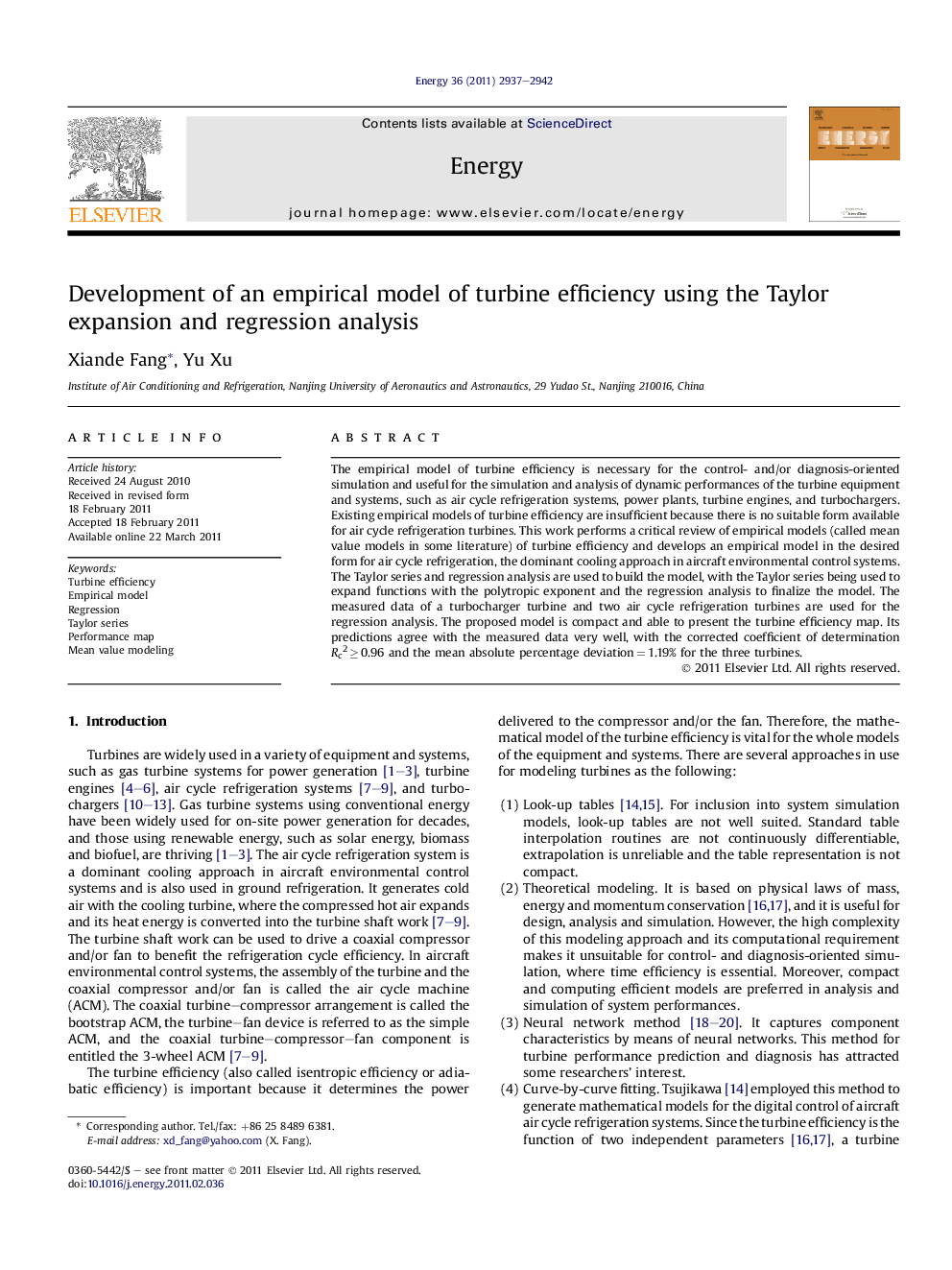| Article ID | Journal | Published Year | Pages | File Type |
|---|---|---|---|---|
| 1734525 | Energy | 2011 | 6 Pages |
The empirical model of turbine efficiency is necessary for the control- and/or diagnosis-oriented simulation and useful for the simulation and analysis of dynamic performances of the turbine equipment and systems, such as air cycle refrigeration systems, power plants, turbine engines, and turbochargers. Existing empirical models of turbine efficiency are insufficient because there is no suitable form available for air cycle refrigeration turbines. This work performs a critical review of empirical models (called mean value models in some literature) of turbine efficiency and develops an empirical model in the desired form for air cycle refrigeration, the dominant cooling approach in aircraft environmental control systems. The Taylor series and regression analysis are used to build the model, with the Taylor series being used to expand functions with the polytropic exponent and the regression analysis to finalize the model. The measured data of a turbocharger turbine and two air cycle refrigeration turbines are used for the regression analysis. The proposed model is compact and able to present the turbine efficiency map. Its predictions agree with the measured data very well, with the corrected coefficient of determination Rc2 ≥ 0.96 and the mean absolute percentage deviation = 1.19% for the three turbines.
► Performed a critical review of empirical models of turbine efficiency. ► Developed an empirical model in the desired form for air cycle refrigeration, using the Taylor expansion and regression analysis. ► Verified the method for developing the empirical model. ► Verified the model.
